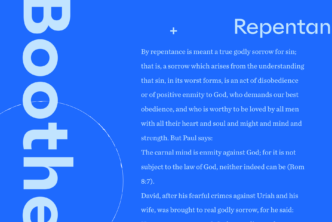Because the Bible says quite clearly that it is “God-breathed” (2 Tim. 3:16), Christians tend to think of inspiration as some sort of otherworldly event. In the course of many years of teaching biblical studies (and chit-chat that happens at church) I’ve heard some pretty strange explanations of inspiration—about how God took control of the hand and mind of the writer, or how the authors slipped into a heaven-sent trance state, or how the Spirit whispered the precise words into their minds (or maybe just “impressed” them into their consciousness). Frankly, all of that sounds more like an episode of The X-Files than biblical theology. And it absolutely doesn’t reflect what you actually find in Scripture upon close examination.
There are some transparent examples of why the “paranormal event” view of inspiration makes no sense. There are four gospels in the New Testament. Three of them (Matthew, Mark, and Luke) overlap with respect to the events they include about the life of Jesus. But those events may be dissimilar in the level of detail[1] or arranged in a different sequence.[2] Dialogue within shared episodes also diverges in vocabulary, length of statements, and who speaks when. And even when the dialogue (in English translations) appears identical, it isn’t. In the Greek text writers can use different lemmas, verb tenses, noun cases, conjunctions, and participles over verbs. If the stories of Jesus were “whispered” to the writers or downloaded into their semiconscious minds, divergences like these are the last thing one would expect. Would the Holy Spirit really want to yank our theological chains like that? I doubt it.
There are a lot of other phenomena in the biblical text that tell the careful reader quite clearly that inspiration wasn’t an event. Most biblical books show signs of editing. One of the best examples is the first four verses of the book of Ezekiel:
1 In the thirtieth year, in the fourth month, on the fifth day of the month, as I was among the exiles by the Chebar canal, the heavens were opened, and I saw visions of God. 2 On the fifth day of the month (it was the fifth year of the exile of King Jehoiachin), 3 the word of the LORD came to Ezekiel the priest, the son of Buzi, in the land of the Chaldeans by the Chebar canal, and the hand of the LORD was upon him there. 4 As I looked, behold, a stormy wind came out of the north. . . . (ESV)
The first verse uses the first person in two instances—indicated by bold underlining. The first person language creates the expectation that Ezekiel is writing about himself. But in verse three there is a switch to the third person (boldface without underlining). Now the writer is clearly not Ezekiel, but is an anonymous author referring to Ezekiel in the third person. Verse four switches back to first person. These switches are the tell-tale signs of an editor. The Holy Spirit is not suffering from schizophrenia. This material is clearly not dictated or downloaded or the product of automatic writing.
Instruments or puppets?
While God does speak to people in Scripture, the passages that describe how biblical authors produced what they did never cast it in anomalous terms. According to the Bible, Scripture is the result of divine influence and the very normal human activity of speaking and, by extension, writing (2 Tim. 3:16; 2 Pet 1:16-21). Writers report events and record feelings. They build arguments. They express themselves in poetry. They use sources. They borrow thoughts. They (or other hands that followed) rewrite and refine what was written. Authors are sensitive to genre, structure, literary devices, word choice, poetic parallelism, and narrative art. There is word play, irony, and premeditated structuring of plot. The books we have in our Bible are the result of work and careful thought. Biblical books were not slapped together. No part of any biblical book just “happened” out of the blue.
God’s role is no less significant and intentional. God chose a wide range of people and providentially prepared them all their lives for the moment he would prompt them, either by his Spirit or by someone else’s influence, to write something down for the posterity of God’s people (or to collect and edit material from a prophetic figure). God put them in situations that would lead to the need for them to write the message God wanted preserved. He didn’t need to give put them into a trance and manipulate fingers like we do to little children when they’re learning their letters. They didn’t need hand-holding (or mind control). They were his instruments, not his puppets.
Embracing the Bible’s humanity
Why does any of this matter? Because minimizing (or denying) the humanity behind biblical authorship is a surefire way to undermine the doctrine of inspiration. Explaining the Bible as something dispensed from a super-intelligent deity from out of the ether is irreconcilable with what we see in it. On the other hand, defining inspiration as a long process guided unfailingly by Providence helps account for the phenomena of Scripture. Embracing the humanity of the Bible is enormously helpful for understanding what’s actually in the Bible—in terms of both its “untidiness” and its artistry.
[1] Compare Matthew and Mark’s account of the temptation of Jesus: Matt. 4:1-11; Mark 1:12-13.
[2] Compare events that follow the calling of the Twelve between Matthew, Mark, and Luke (begin in Matt. 10:1-4; Mark 3:13-19; Luke 6:12-15).
***





